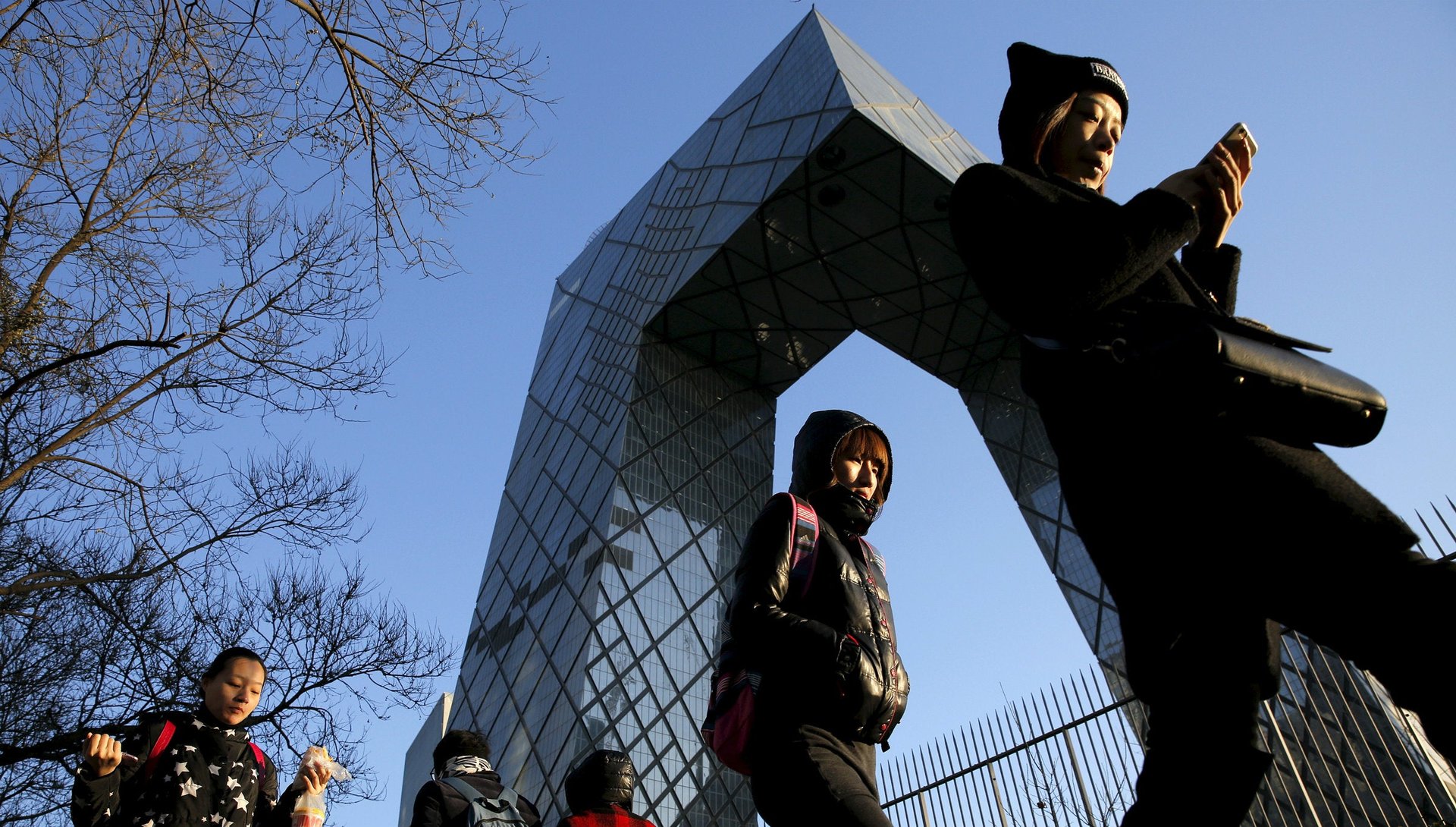China’s propaganda mouthpieces are the latest additions to Facebook’s Instant Articles
It is no secret that Mark Zuckerberg is doing whatever he can to get Facebook into China—and now it involves helping to spread the party line to the rest of the world.


It is no secret that Mark Zuckerberg is doing whatever he can to get Facebook into China—and now it involves helping to spread the party line to the rest of the world.
Yesterday Facebook announced that it has hand-chosen several Asian publishers join its Instant Articles program. The program lets publishers put complete articles on Facebook, so that readers aren’t slowed down by clicking through to a separate website (and so Facebook retains users on its own site).
This round includes everything from the Hindustan Times to Vietnam’s WebTretho. Some of the publications joining the program have political ties: Singapore’s Straits Times is owned partially by Temasek, the country’s sovereign wealth fund, and Malaysia’s The Star is owned by a major political party. But two stand out—China Daily, and CCTV News.
These English-language media outlets from China are owned by the Chinese government, and it’s difficult to describe their coverage of world events and domestic politics as anything other than government propaganda. As such, the coverage and commentary they offer is often one-sided or misleading, and sometimes it it downright false. Here’s a few examples:
- “Most nations” didn’t support giving Liu Xiaobo the Nobel prize, China Daily reported after the imprisoned human rights activist was awarded it in 2010. The “majority of countries keep their distance from the Nobel Committee” the paper said. (About one-third of invited nations, including Iran, Saudi Arabia, and Pakistan declined to attend the ceremony).
- China Daily called the Hong Kong’s umbrella protests a “color revolution” “waged by Western anti-China forces” despite the fact that the movement was homegrown, student-led, and focused on Hong Kong elections, not overthrowing the government.
- US President Barack Obama only meets with the Dalai Lama to score political points at home, China Daily reported, and the Chinese government has the absolute right to choose who is the next reincarnation of the Dalai Lama.
- Western media coverage of the northwest Xinjiang region is “worthless,” the paper writes, because it doesn’t rely on first-hand accounts (though it doesn’t mention the government does not allow foreign reporters to work freely in the region).
Ongoing issues always toe the party line—pollution is bad but the government is working on it; corruption will lead to swift punishment.
CCTV alone gets more than 1,000 “propaganda orders” a year, a former producer wrote in 2013, and offers only a limited view of China. “The voices we hope to broadcast and the attitudes we hope to express have been silenced over and over again,” he wrote.
So who is going to read CCTV News or the China Daily’s Instant Articles on Facebook?
Foreigners curious about China can easily turn to other English-language outlets for more nuanced coverage. Meanwhile, the only real reason for a native Chinese-speaking person to read China Daily or CCTV News (rather than their Chinese versions) is to practice English comprehension. And that reader likely resides in China, where Facebook is blocked, and these Instant Articles can’t be viewed in the first place.
Adding CCTV and China Daily to Instant Articles likely has to more to do with Zuckerberg’s ongoing charm offensive towards the Chinese government than getting an audience for them. Facebook already has an office and staff in Beijing, and unblocking the social network in China is believed to be one of Zuckerberg’s top goals. Adding the government’s propaganda outlets to Instant Articles couldn’t hurt—and it doesn’t really matter if no one reads them.